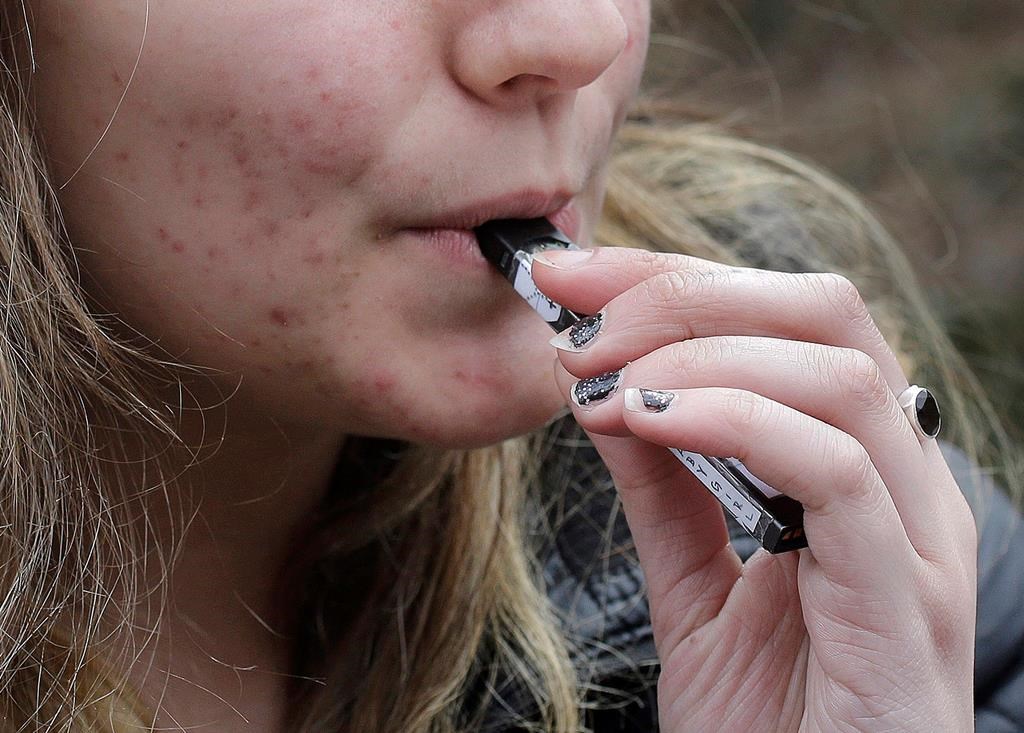An exclusive poll conducted for Global News by Ipsos has found widespread support for increasing the minimum legal age to purchase electronic cigarettes of vapes to 21, up from the current 18 or 19, depending on the province.

“Roughly eight in 10 support raising the minimum age for use of these products to 21,” said Sean Simpson, vice-president of Ipsos polling. “Support was quite strong among every Canadian demographic that we studied, in every Canadian province, gender, age, income and education.”
READ MORE: Here’s how vaping is regulated in each province
The health impacts of vaping have received a great deal of attention this year because of an outbreak of EVALI — e-cigarette/vaping-associated lung injury — across the United States and Canada. EVALI is the name medical professionals have given to an illness that has been linked to 54 deaths and hospitalized more than 2,500 patients in the United States. Fourteen cases of vaping-associated lung illness have also been reported in Canada.
“The vaping-related pulmonary illness or respiratory illness is very concerning,” said Dr. Ran Goldman, a pediatric emergency physician at B.C. Children’s Hospital. “But I don’t think this is the most significant fact we should take into account. Any vaping, any addiction in the adolescent years in youth in concerning.”
Goldman says raising the legal purchase age of vaping products would be a positive step.
In her annual report, Canada’s chief public health officer said: “The increased use of vaping products by youth represents an emerging and serious health trend.”

Get weekly health news
Dr. Theresa Tam added: “The long-term effect of exposure to a range of harmful chemicals such as formaldehyde, acrolein, metals and other contaminants through vaping remains unknown. Emerging evidence points to increased risk of respiratory disease in vaping device users, highlighting the need for further studies.”

The report also highlights vaping’s increasing popularity among young people.
“In 2017, approximately 15 per cent of Canadians aged 15 years and older had ever tried a vaping product. Accordingly, from 2017 to 2018, the percentage of Canadian youth age 16 to 19 years who reported vaping in the last month increased substantially by 74 per cent,” the report read.
Last week, Health Canada announced plans to ban e-cigarette advertising anywhere it could be seen by children and teens. The federal health minister also announced new mandatory health warnings on vaping-product packaging and requirements for packaging to be child-resistant. Additional regulations include reducing nicotine concentration levels, and flavour restrictions are also being considered.

Some provincial governments have also taken additional steps to prevent young people from vaping. Nova Scotia became the first province to ban the sale of flavoured e-cigarettes and vapes earlier this month, though the rules don’t take effect until April 1, 2020. Ontario is also considering a flavouring ban, while Alberta is reviewing its vaping regulations, with plans to make changes over the next few months. In B.C, nicotine levels in vapour pods will be capped at 20 mg/ml starting in spring 2020, a limit that is already in effect across the European Union.
This Ipsos poll, conducted on behalf of Global News, was an online survey of 1,002 Canadians conducted between Dec. 3 and 5, 2019. The results were weighted to better reflect the composition of the adult Canadian population, according to census data. The precision of Ipsos online polls is measured using a credibility interval. In this case, the poll is considered accurate to within plus or minus 3.5 percentage points, 19 times out of 20.








Comments
Want to discuss? Please read our Commenting Policy first.